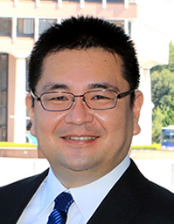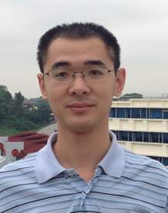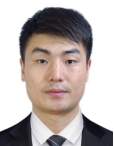Keynote Speakers
空 Topic:Wearable Biosensors and Volatile Biomarker Imaging System: Toward Real-Time, Non-Invasive Monitoring of Human Health
Topic:Wearable Biosensors and Volatile Biomarker Imaging System: Toward Real-Time, Non-Invasive Monitoring of Human Health
Takahiro Arakawa
Tokyo University of Technology
Abstract:The measurement of biophysical quantities of the human body has garnered significant attention in the medical and healthcare fields. Wearable sensors have emerged as promising tools for monitoring relevant parameters in healthcare, sports, and medical applications. Leveraging biophysical information with these systems is expected to enable proactive health management, thereby improving public health and reducing medical expenditure. This paper discusses two types of wearable biosensors: tear and saliva glucose biosensors. Our group has developed soft contact lens biosensors for tear chemicals and oral cavity biosensors, such as mouthguard biosensors for salivary analysis. Challenges related to integrating biosensors into monitoring biological information and daily medicine are also addressed. Moreover, recent advancements in analytical devices have facilitated the measurement of minute amounts of odorous materials and volatile chemical compounds. Human breath and skin volatiles, including gases from halitosis and body odor, contain compounds indicative of metabolic processes and specific ailments. Measurement of these volatile biological compounds holds promise for simplifying metabolic capacity evaluation, medical diagnostics, and disease screening. We have developed a novel two-dimensional fluorometric imaging system for detecting ethanol vapor released from human breath and palm skin. This imaging system measures ethanol vapor concentrations by analyzing the fluorescence intensity of nicotinamide adenine dinucleotide (NADH) through an enzymatic reaction induced by alcohol dehydrogenase. The NADH fluorometric imaging system enables real-time, two-dimensional imaging of ethanol vapor distribution at ppb concentration levels. We applied this imaging system to measure breath ethanol vapor and skin ethanol vapor from a human palm, demonstrating rapid and accurate responses with visible measurements. This technology holds promise for real-time analysis of metabolism function in the near future.
Biography:Dr. Takahiro Arakawa is currently a Professor at the Department of Electric and Electronic Engineering, Tokyo University of Technology, since 2025. He had served as an Associate Professor at the same department since 2021. He received his BS and MS degrees from Waseda University in 2002 and 2004, respectively. He completed the Ph.D. program in Nanoscience and Nanoengineering and received his Ph.D. degree for research on “Microfluidic system for single cell analysis” from Waseda University in 2007. In 2008, he joined the Laboratory of Bioanalytical Chemistry at the University of Tokyo as a Postdoctoral Research Fellow of the Japan Society for the Promotion of Science (JSPS, PD). Since 2009, he served as an Assistant Professor at Tokyo Medical and Dental University in the Department of Biomedical Devices and Instrumentation, and was promoted to Junior Associate Professor in 2014. From 2017 to 2018, he was a visiting researcher at the Departments of Electrical Engineering and Bioengineering at the University of California, Los Angeles (UCLA). His research interests include microfluidics, bio micro-electro-mechanical systems (Bio-MEMS), biosensors, optical systems, and bio-microsystems for medical applications.
空 Topic:Inverse Optimal Control from Expert Demonstrations
Topic:Inverse Optimal Control from Expert Demonstrations
Chengpu Yu
Beijing Institute of Technology
Abstract:Inverse optimal control aims to recover the cost functions associated with control problems from expert demonstrations, which can be specially applied for the intention identification in a non-cooperative game setting. In this talk, according to different types of dynamical system models and optimal control settings, three inverse optimal control problems are discussed, including inverse linear quadratic optimal control using partial and noisy trajectory data, inverse model predictive control with time-varying or nonlinear systems, and inverse non-cooperative game with heterogeneous multi-agent interactions. These results represent a step toward efficient, reliable, and interpretable behavioral modeling for dynamic systems, providing an alternative to the inverse reinforcement learning.
Biography:Chengpu Yu received the B. E. and M. E. degrees from the University of Electronic Science and Technology of China, in 2006 and 2009, respectively, and the Ph.D. degree from Nanyang Technological University, Singapore, in 2014. From June 2014 to August 2017, he has been a PostDoc at Delft Center for Systems and Control, The Netherlands. He is currently a professor with School of Automation, Beijing Institute of Technology, China. His research interests include system identification and reinforcement learning.He has authored/co-authored more than 60 journal articles, and two research monographs on system identification. He has received the First Prize in Natural Science from the Chinese Association of Automation and the First Prize in Natural Science from the Ministry of Education in 2022. He is currently serving as associate editors of Control Theory and Technology, Journal of Systems Science and Complexity, and IEEE CSS Conference Editorial Board.

Topic:Intelligent Modeling of Carbon Efficiency in the Sintering Process
Jie Hu
China University of Geosciences
Abstract:The sintering process represents a typical industrial process. This process involves numerous complex characteristics, such as multiple parameters, nonlinearity, and multiple operating conditions, etc. In order to effectively enhance the energy utilization rate of this process, it is necessary to conduct an effective prediction of carbon efficiency. Therefore, a series of carbon efficiency intelligent prediction models based on artificial intelligence algorithms have been proposed. It laid the foundation for achieving energy conservation and emission reduction in the sintering process.
Biography:Jie Hu received the B.S. degree in automation and the Ph.D. degree in control science and engineering from China University of Geosciences, Wuhan, China, in 2015 and 2020, respectively. He was a joint Ph.D. student with the Department of Electrical and Computer Engineering, University of Alberta, Edmonton, AB, Canada, from 2018 to 2020. He was a Post-Doctoral Fellow of control science and engineering, China University of Geosciences, from 2020 to 2022, where he is currently a Professor with the School of Automation. His current research interests include process control, intelligent control, and computational intelligence. He was recipient of the Best Paper Award of the IEEE International Conference on Industrial Technology in 2025 and the Young Researcher Award of the 13th China-Japan International Workshop on Information Technology and Control Applications in 2020.





